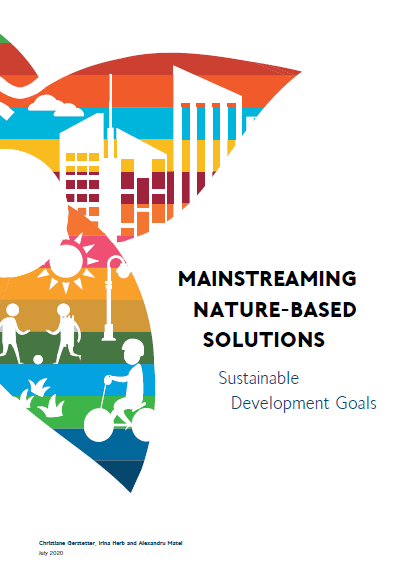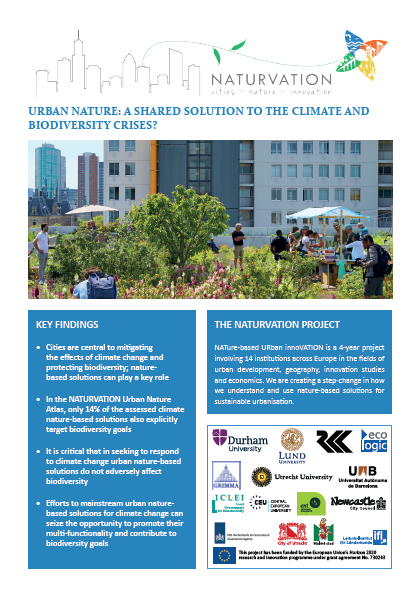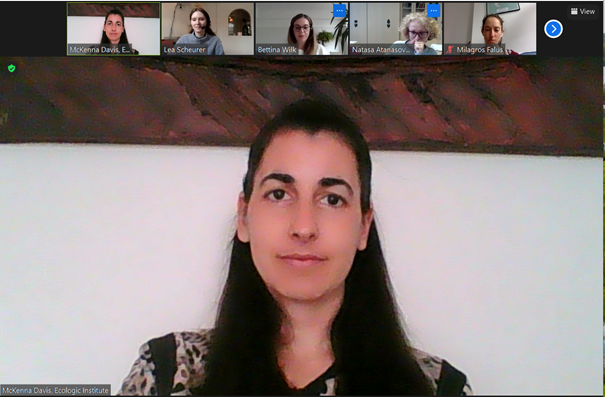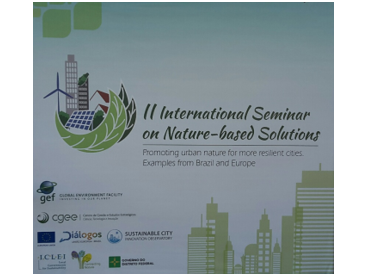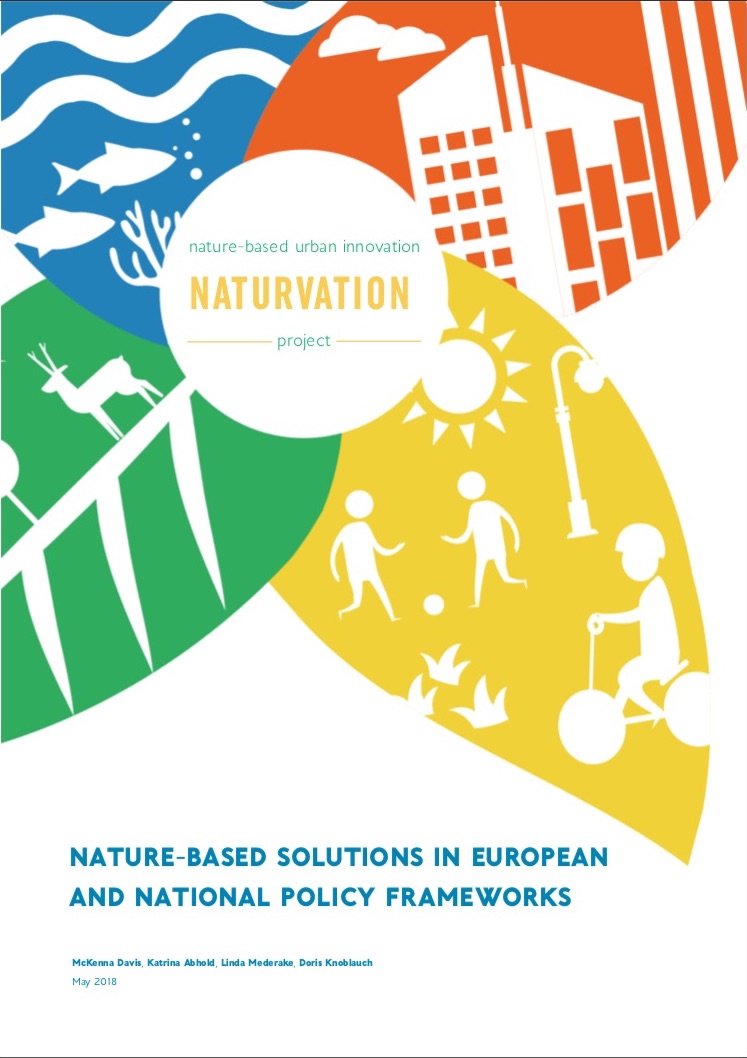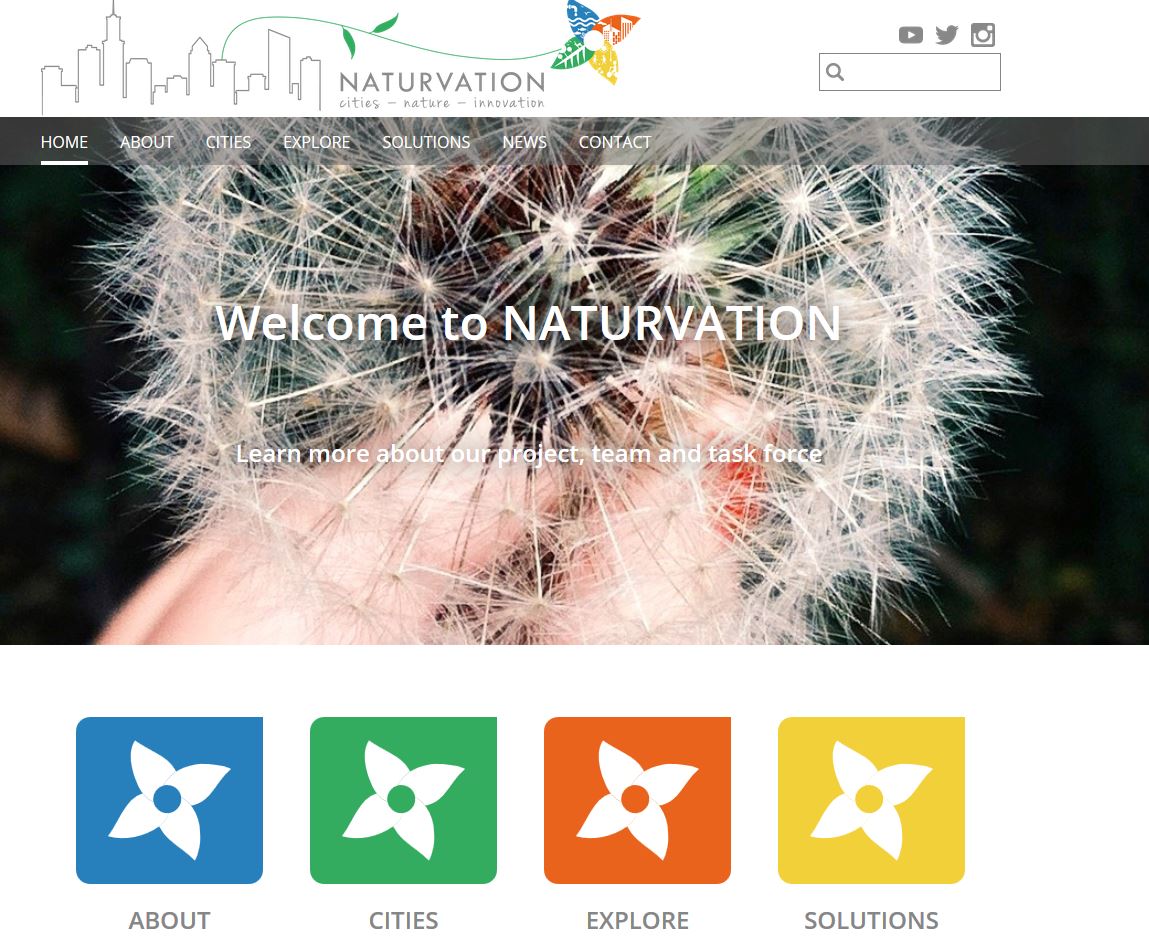Urban Nature-based Solutions in Germany – experiences, successes and future challenges – Expert workshop
- Event
- Date
-
- Location
- online
On 5 May 2020, the expert workshop "Urban nature-based solutions in Germany – experiences, successes and future challenges" took place online as part of the NATURVATION project. At this workshop, more than 60 experts from policy, administration, practice and research jointly discussed current challenges, need for action and options for a broader application of nature-based solutions in Germany.
The workshop focused on urban nature-based solutions, whose implementation and promotion has been researched within the NATURVATION project. Nature-based solutions (NBS) refer to approaches that utilise nature and functioning ecosystems to address current societal challenges, such as climate change, social integration, human health or biodiversity loss. One key advantage of NBS is that they can deliver a variety of benefits in parallel, often making them more cost-effective in the long run than traditional grey infrastructure. Examples of urban NBS include green roofs, urban community gardens, renaturalised brownfields or sustainable drainage systems. While the idea behind NBS is not really new, the term 'nature-based solution' tries to speak to a wider audience beyond the biodiversity conservation sector. Related concepts are, for example, green and blue infrastructure, urban green, ecosystem-based adaptation or natural water retention measures.
During the workshop, diverse outcomes and findings from the NATURVATION project were presented including: Findings from 150 German NBS case studies included in the Urban Nature Atlas as well as innovative NBS financing, cooperation and governance models. These models were illustrated by invited experts with NBS examples from Hamburg, Essen, Hanover, Grimma and Leipzig. In addition, the current political framework and challenges in Germany were presented from the perspective of the federal government. In the final panel discussion, ideas and possibilities were developed to increase the implementation of nature-based solutions in German cities for the benefit of urban nature and citizens. Amongst others, the following points were highlighted by the podium speakers.
Current challenges in the implementation of NBS include:
- Addressing the space and planning problems in cities,
- Reacting promptly to increasing climate events (heavy rainfall, flooding, drought and heat),
- Identifying solutions for sustainable and enduring maintenance concepts,
- Working with different actors and different sectors, as is conditioned by the multifunctionality of NBS, and learning how to collaborate effectively,
- Building technical capacity in the planning, implementation and maintenance of NBS, and
- Avoiding undesirable effects of NBS measures, such as green gentrification.
Possibilities for improved implementation of NBS include:
- Promoting cooperation between private and public actors,
- Attracting supporters (e.g. mayors) for new ideas and the use of NBS,
- Enabling and strengthening cooperation between different actors across sectors and levels of governance (e.g. at city level or in support programmes and master plans),
- Learning from examples of good practice and promoting exchange between and within cities,
- Enabling adequate civic participation to communicate and legitimise the benefits of NBS for society and each individual,
- Demonstrating the effectiveness of NBS ‘on the ground’ to raise the level of awareness and understanding of NBS amongst policy makers, administrations, planners, engineers, private actors and citizens, and
- Improving financing for the implementation and especially the maintenance of NBS and the areas involved.
The workshop showed that there is already a great variety of NBS interventions in German cities that have been initiated and implemented through local commitment on the part of the cities and the population. However, to tap the full potential of NBS in cities and to implement NBS on a broader scale, further changes are necessary in the areas of e.g. cooperation and governance, financing, and the policy framework. Furthermore, a better understanding of the 'city as a system' and the consideration of a landscape perspective in the planning process is needed.
The presentation slides [pdf, 10.5 MB, German] and the programme [pdf, 93 kB, German] are available for download.




